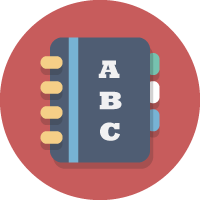ELT Methods and Practices
Evdokia Karavas
'ELT Methods and Practices' is a core course in our undergraduate programme and an essential component of the ELT Pre-service Training Programme that the Faculty of English Language and Literature offers. It is a degree requirement course and therefore compulsory for all students, like the course of Applied Linguistics to Foreign Language Teaching and Learning, which is its prerequisite. It is intended to provide students with the knowledge and skills that will enable them to teach English as a ‘foreign’ or additional language.
Less'ELT Methods and Practices' is a core course in our undergraduate programme and an essential component of the ELT Pre-service Training Programme that the Faculty of English Language and Literature offers. It is a degree requirement course and therefore compulsory for all students, like the course of Applied Linguistics to Foreign Language Teaching and Learning, which is its prerequisite. It is intended to provide students with the knowledge and skills that will enable them to teach English as a ‘foreign’ or additional language.
'ELT Methods and Practices' is a core course in our undergraduate programme and an essential component of the ELT Pre-service Training Programme that the Faculty of English Language and Literature offers. It is a degree requirement course and therefore compulsory for all students, like the course of Applied Linguistics to Foreign Language Teaching and Learning, which is its prerequisite. It is intended to provide students with the knowledge and skills that will enable them to teach English as a ‘foreign’ or additional language.
Syllabus

Aims and Objectives
The overall aim of this course is to provide students with a critical awareness of ELT practices and to develop their theoretical and practical knowledge related to the teaching and learning of languages and particularly English as a foreign language. An equally important general aim of the course, which is offered within the framework of the pre-service EFL Teacher Training Programme that our Faculty offers to undergraduate students, is to prepare students as future teachers of English. To this end, the course has the following goals:
- To provide a basic understanding of recent developments in ELT approaches, methods and techniques and their underlying principles, particularly in view of the position of English today as an international language.
- To raise awareness of how developments and research in theoretical linguistics, psycholinguistics, sociolinguistics, educational linguistics and discourse analysis have informed language teaching/learning approaches, classroom practices, assessment and materials design.
- To become familiar with critical trends in the mainstream ELT field and begin thinking of alternative ways of teaching languages in a European setting which aspires to promote plurilingual citizenry.
- To introduce students to ways in which language teaching/learning/assessment approaches and methods can be employed in ELT programmes (i.e., in the classroom, in self-directed learning, in EFL teaching materials).
- To build an understanding of the perception and production skills that are involved when dealing with oral and written texts so as to realize the implications for the development of these skills in an ELT programme.
- To become familiar with the underlying principles of techniques for the teaching/testing of the lexicogrammatical elements of language.
- To show students how to apply these techniques in various teaching/learning situations.
- To provide opportunities to students for controlled practice teaching.
- To promote positive and open attitudes to teaching and assessment and to sensitise students to factors affecting the teaching and learning environment.
Objectives of the course
By the end of the course the students are expected to demonstrate:
- An understanding of the principles of lesson planning and an ability to design lesson plans.
- An understanding of classroom management skills such as giving instructions, grouping students purposefully, monitoring on-going classwork etc.
- An awareness of the use and purpose of simple resources in teaching (pictures, use of board, OHP, flash cards etc.).
- An awareness of the nature of perception and production skills (listening, reading, speaking and writing, their similarities/differences and main characteristics) and the basic principles underlying the development of these skills.
- An understanding of different ways of dealing with elements of language (at the level of lexis, sentence and text) in different teaching situations.
- An understanding of how to use the mother-tongue effectively in teaching and learning situations and how to develop mediation skills.
- An awareness of the types and functions of assessment and ability to design language tests appropriate to a particular group of students.
Instructors
Specialising in the area of Applied Linguistics, Dr Karavas is an Assistant Professor in the Department of Language and Linguistics of the Faculty of English Language and Literature at the National and Kapodistrian University of Athens and co-coordinator of the Pre-service teacher education programme. She also tutor for the Hellenic Open University on the MA programme in ELT where she teaches the Course design and Evaluation module. She has also coordinated the development of and co-authored material for open and distance learning of the Hellenic Open University.
A graduate of the Faculty where she currently teaches, Dr Karavas completed her postgraduate studies in the UK in the area of TEFL. She holds a doctorate from the University of Warwick where she specialized in the evaluation of ELT curricula educational research methods and English language teacher education. She has experience in the evaluation of ELT programmes (in Europe and elsewhere) and in the management of post-service teacher education programmes. For a number of years, she was a lecturer at the Centre for English Language Teacher Education at the University of Warwick where she taught postgraduate courses for EFL teachers. She has taken part in conferences within and outside Greece and her research interests include curriculum/ programme evaluation, EFL didactics, educational research methods, teacher education and development. She has publications in these areas in local and international journals.
Within the wider context of the research, evaluation and development work for the KPG, Dr Karavas is responsible for issues related to the oral component of the KPG in English- development and design of speaking module and responsible for the training of oral examiners and markers for the KPG exam.
Textbooks
- ELT Methods and Practices: Course Workbook (2015). Athens: University of Athens.
- Hedge, T. (2000). Teaching and Learning in the Language Classroom. Oxford: Oxford University Press.
Bibliography
- Cross, D. (1992). A Practical Handbook of Language Teaching. London: Prentice Hall.
- Dendrinos B. & Drossou M. (eds.) (2003). Practices of English Language Teaching. Athens: National and Kapodistrian Unviversity of Athens.
- Johnson, K. (2001). An Introduction to Foreign Language Learning and Teaching. London: Longman
- Lynch B. (1996). Communication in the Language Classroom. Oxford: Oxford University Press.
- McDonough J. and Shaw C. (1993). Materials and Methods in ELT. Oxford: Blackwell
- Matthews, A., Spratt, M. & Dangerfield, L. (1985). At the Chalkface. London: Nelson.
- Nunan, D. (1989). Designing Tasks for the Communicative Curriculum. Cambridge: Cambridge University Press.
- Nunan, N. (1989). Understanding Language Classrooms. London: Prentice Hall
- Papakonstantinou A. (1997). Creating the Whole Person in New Age . Athens: Karamitsas.
- Richards, J.C. (1994). The Language Teaching Matrix. Cambridge: Cambridge University Press.
- Sheils, J. (1988). Communication in the Modern Languages Classroom. Strasbourg: Council of Europe
- Ur, P. (1996). A Course in Language Teaching. Cambridge: Cambridge University Press.
The overall aim of this course is to provide students with a critical awareness of ELT practices and to develop their theoretical and practical knowledge related to the teaching and learning of languages and particularly English as a foreign language. An equally important general aim of the course, which is offered within the framework of the pre-service EFL Teacher Training Programme that our Faculty offers to undergraduate students, is to prepare students as future teachers of English. To this end, the course has the following goals:
- To provide a basic understanding of recent developments in ELT approaches, methods and techniques and their underlying principles, particularly in view of the position of English today as an international language.
- To raise awareness of how developments and research in theoretical linguistics, psycholinguistics, sociolinguistics, educational linguistics and discourse analysis have informed language teaching/learning approaches, classroom practices, assessment and materials design.
- To become familiar with critical trends in the mainstream ELT field and begin thinking of alternative ways of teaching languages in a European setting which aspires to promote plurilingual citizenry.
- To introduce students to ways in which language teaching/learning/assessment approaches and methods can be employed in ELT programmes (i.e., in the classroom, in self-directed learning, in EFL teaching materials).
- To build an understanding of the perception and production skills that are involved when dealing with oral and written texts so as to realize the implications for the development of these skills in an ELT programme.
- To become familiar with the underlying principles of techniques for the teaching/testing of the lexicogrammatical elements of language.
- To show students how to apply these techniques in various teaching/learning situations.
- To provide opportunities to students for controlled practice teaching.
- To promote positive and open attitudes to teaching and assessment and to sensitise students to factors affecting the teaching and learning environment.
Objectives of the course
By the end of the course the students are expected to demonstrate:
- An understanding of the principles of lesson planning and an ability to design lesson plans.
- An understanding of classroom management skills such as giving instructions, grouping students purposefully, monitoring on-going classwork etc.
- An awareness of the use and purpose of simple resources in teaching (pictures, use of board, OHP, flash cards etc.).
- An awareness of the nature of perception and production skills (listening, reading, speaking and writing, their similarities/differences and main characteristics) and the basic principles underlying the development of these skills.
- An understanding of different ways of dealing with elements of language (at the level of lexis, sentence and text) in different teaching situations.
- An understanding of how to use the mother-tongue effectively in teaching and learning situations and how to develop mediation skills.
- An awareness of the types and functions of assessment and ability to design language tests appropriate to a particular group of students.
Specialising in the area of Applied Linguistics, Dr Karavas is an Assistant Professor in the Department of Language and Linguistics of the Faculty of English Language and Literature at the National and Kapodistrian University of Athens and co-coordinator of the Pre-service teacher education programme. She also tutor for the Hellenic Open University on the MA programme in ELT where she teaches the Course design and Evaluation module. She has also coordinated the development of and co-authored material for open and distance learning of the Hellenic Open University.
A graduate of the Faculty where she currently teaches, Dr Karavas completed her postgraduate studies in the UK in the area of TEFL. She holds a doctorate from the University of Warwick where she specialized in the evaluation of ELT curricula educational research methods and English language teacher education. She has experience in the evaluation of ELT programmes (in Europe and elsewhere) and in the management of post-service teacher education programmes. For a number of years, she was a lecturer at the Centre for English Language Teacher Education at the University of Warwick where she taught postgraduate courses for EFL teachers. She has taken part in conferences within and outside Greece and her research interests include curriculum/ programme evaluation, EFL didactics, educational research methods, teacher education and development. She has publications in these areas in local and international journals.
Within the wider context of the research, evaluation and development work for the KPG, Dr Karavas is responsible for issues related to the oral component of the KPG in English- development and design of speaking module and responsible for the training of oral examiners and markers for the KPG exam.
- ELT Methods and Practices: Course Workbook (2015). Athens: University of Athens.
- Hedge, T. (2000). Teaching and Learning in the Language Classroom. Oxford: Oxford University Press.
- Cross, D. (1992). A Practical Handbook of Language Teaching. London: Prentice Hall.
- Dendrinos B. & Drossou M. (eds.) (2003). Practices of English Language Teaching. Athens: National and Kapodistrian Unviversity of Athens.
- Johnson, K. (2001). An Introduction to Foreign Language Learning and Teaching. London: Longman
- Lynch B. (1996). Communication in the Language Classroom. Oxford: Oxford University Press.
- McDonough J. and Shaw C. (1993). Materials and Methods in ELT. Oxford: Blackwell
- Matthews, A., Spratt, M. & Dangerfield, L. (1985). At the Chalkface. London: Nelson.
- Nunan, D. (1989). Designing Tasks for the Communicative Curriculum. Cambridge: Cambridge University Press.
- Nunan, N. (1989). Understanding Language Classrooms. London: Prentice Hall
- Papakonstantinou A. (1997). Creating the Whole Person in New Age . Athens: Karamitsas.
- Richards, J.C. (1994). The Language Teaching Matrix. Cambridge: Cambridge University Press.
- Sheils, J. (1988). Communication in the Modern Languages Classroom. Strasbourg: Council of Europe
- Ur, P. (1996). A Course in Language Teaching. Cambridge: Cambridge University Press.
 This unit focuses on the Greek Young Leanrers Programme (PEAP) which was developed by the Centre for Language Teaching, Testing and Assessment (RCeL) of the University of Athens and involves the introduction of English in the first two grades of primary school. The presentation highlights the main goals and rationale of the programme, its innovative features and content. Detailed information is also provided on the specifications and characteristics of the distance education online training course developed for PEAP teachers.
This unit focuses on the Greek Young Leanrers Programme (PEAP) which was developed by the Centre for Language Teaching, Testing and Assessment (RCeL) of the University of Athens and involves the introduction of English in the first two grades of primary school. The presentation highlights the main goals and rationale of the programme, its innovative features and content. Detailed information is also provided on the specifications and characteristics of the distance education online training course developed for PEAP teachers.
 This unit focuses on one of the most significant curriculum innovations in Greece- the New School. More specifically the aim of this unit is to acquaint students with the principles and innovative features of the New School and more specifically the new Integrated Foreign Languages Curriculum developed under the auspices of the New School. The IFLC is a curriculum which concerns all foreign languages offered in the Greek educational system from primary to upper secondary school. The presentation highlights the innovative features of the IFLC, its goals and content. Special attention is paid to the can-do statements (illustrative descriptors of language proficiency) for each level of language proficiency identified in the IFLC as well as the purpose of each of the appendices of the IFLC.
This unit focuses on one of the most significant curriculum innovations in Greece- the New School. More specifically the aim of this unit is to acquaint students with the principles and innovative features of the New School and more specifically the new Integrated Foreign Languages Curriculum developed under the auspices of the New School. The IFLC is a curriculum which concerns all foreign languages offered in the Greek educational system from primary to upper secondary school. The presentation highlights the innovative features of the IFLC, its goals and content. Special attention is paid to the can-do statements (illustrative descriptors of language proficiency) for each level of language proficiency identified in the IFLC as well as the purpose of each of the appendices of the IFLC.
 This unit focuses on the teaching of grammar at sentence and discourse level. More specifically, the issues that the unit addresses include: a) What is grammar and what is a grammar book? b) How is the teaching of grammar approached in the Audiolingual method and the Communicative approach? c) What does the teaching of grammar involve? What is form, meaning and use and what is the role of context in presenting new language items? What does teaching grammar at discourse level involve?
This unit focuses on the teaching of grammar at sentence and discourse level. More specifically, the issues that the unit addresses include: a) What is grammar and what is a grammar book? b) How is the teaching of grammar approached in the Audiolingual method and the Communicative approach? c) What does the teaching of grammar involve? What is form, meaning and use and what is the role of context in presenting new language items? What does teaching grammar at discourse level involve?
 This unit focuses on the teaching and acquisition of vocabulary in a foreign language. After discussing the issue of what is included in the teaching of vocabulary and what kinds of knowledge does knowing a word entail, the unit focuses on how new words are learned by students and how they are stored in long term memory. In addition the unit also highlights principles for presenting and practicing vocabulary with students and presents different types of activities that can be used for practicing new words.
This unit focuses on the teaching and acquisition of vocabulary in a foreign language. After discussing the issue of what is included in the teaching of vocabulary and what kinds of knowledge does knowing a word entail, the unit focuses on how new words are learned by students and how they are stored in long term memory. In addition the unit also highlights principles for presenting and practicing vocabulary with students and presents different types of activities that can be used for practicing new words.
 This unit focuses on the development of reading comprehension skills. The unit begins with a discussion of the reading comprehension process and the kinds of knowledge we employ in understanding written texts. Models of the reading process are then presented. The unit continues with a discussion of reading purposes, texts and reading skills and how the three interact. The last part of the unit highlights the stages of a reading lesson, the purpose of each stage and kinds of activities that can be used in each stage to develop students’ reading comprehension skills.
This unit focuses on the development of reading comprehension skills. The unit begins with a discussion of the reading comprehension process and the kinds of knowledge we employ in understanding written texts. Models of the reading process are then presented. The unit continues with a discussion of reading purposes, texts and reading skills and how the three interact. The last part of the unit highlights the stages of a reading lesson, the purpose of each stage and kinds of activities that can be used in each stage to develop students’ reading comprehension skills.
 This unit focuses on the development of listening comprehension skills in the foreign language. The unit begins with an overview of models of the listening comprehension process highlighting the range of listening skills and strategies that students need to develop. Factors affecting listening comprehension difficulty for native speakers and foreign language learners are then discussed. The last part of the unit highlights the stages of a listening lesson, the purpose of each stage and kinds of activities that can be used in each stage to develop students’ reading comprehension skills.
This unit focuses on the development of listening comprehension skills in the foreign language. The unit begins with an overview of models of the listening comprehension process highlighting the range of listening skills and strategies that students need to develop. Factors affecting listening comprehension difficulty for native speakers and foreign language learners are then discussed. The last part of the unit highlights the stages of a listening lesson, the purpose of each stage and kinds of activities that can be used in each stage to develop students’ reading comprehension skills.
 This unit focuses on the development of speaking and interaction skills in a foreign language. More specifically, the unit begins with a discussion of the conditions affecting speaking and the characteristics of oral language. A detailed presentation of interaction skills follows. The last part of the unit focuses on ways in which the teacher can develop students’ fluency and on types of speaking activities.
This unit focuses on the development of speaking and interaction skills in a foreign language. More specifically, the unit begins with a discussion of the conditions affecting speaking and the characteristics of oral language. A detailed presentation of interaction skills follows. The last part of the unit focuses on ways in which the teacher can develop students’ fluency and on types of speaking activities.
 This unit focuses on the development of writing skills in a foreign language. The differences between written and oral language are highlighted followed by a discussion of the kinds of knowledge students need in order to be able to write. Models for the development of writing skills are presented in the last part of the session. More specifically, the main principles, stages and types of activities used in the product, process and genre based model are discussed.
This unit focuses on the development of writing skills in a foreign language. The differences between written and oral language are highlighted followed by a discussion of the kinds of knowledge students need in order to be able to write. Models for the development of writing skills are presented in the last part of the session. More specifically, the main principles, stages and types of activities used in the product, process and genre based model are discussed.
Open Academic Course

Num. of Visits : 0
Num. of Hits : 0
Calendar
Announcements
- - There are no announcements -

